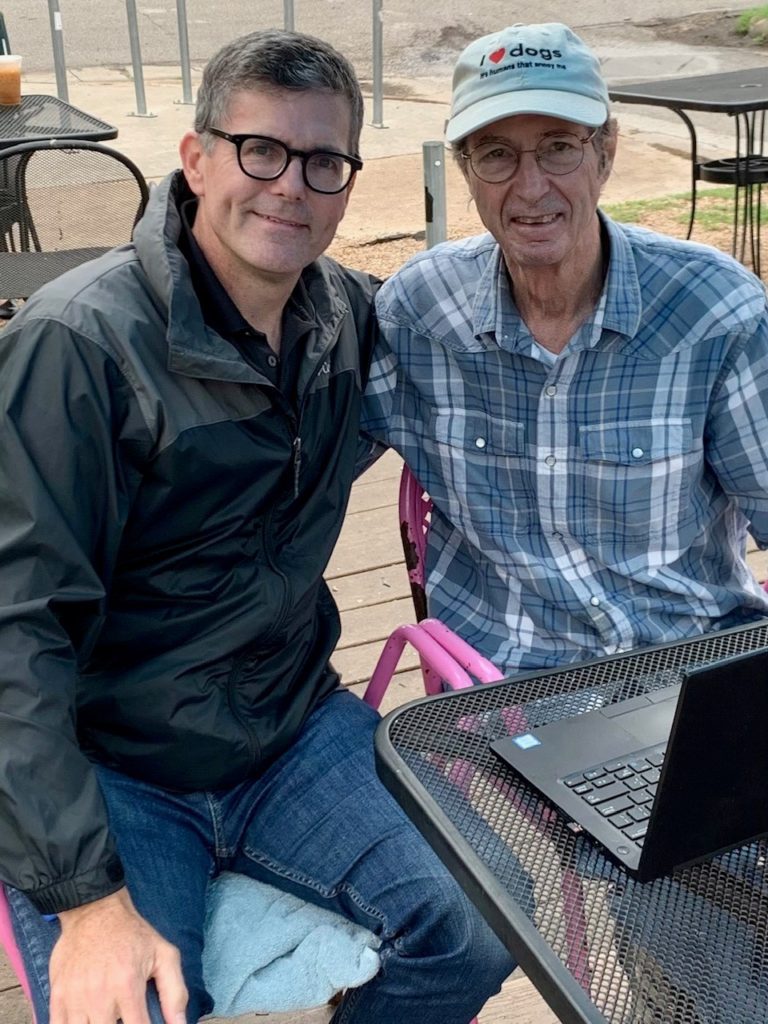
Younger Poets
One thing having Parkinson’s can teach you is that life is unpredictable and fleeting, two truths recently reinforced for me.
I spin on my stationary bike with the TV remote in hand, flipping mindlessly through YouTube videos as I complete my morning workout. Then, I see it—Dead Poet’s Society—and my mind dashes back to 1989, the year before I finished college, and then to an image of the late Robin Williams standing on a desk in the classroom of an all-boys boarding school in late 1950s New England.
Playing a character named John Keating, Williams is their newly hired English teacher and he brings an unconventional approach to the classroom. He gets his students to invest in the subject matter—in poetry, literature, and writing—by showing them how these literary forms can be entertaining and bring one joy, but he also shows them how literature may widen their perspectives on their lives and even prompt their courage to risk pursuing dreams with renewed vigor and steadfast resolve. In other words, a good poem, book, essay, or story has the power to change us, forever, in ways we never imagined, much less anticipated.
In another of the film’s more memorable scenes, Mr. Keating asks one of his students to read from a poem they had been assigned, which opens as follows:
Gather ye rosebuds while ye may,
Old Time is still a-flying;
And this same flower that smiles today
Tomorrow will be dying.[1]
When the student finishes reading, Mr. Keating interprets its meaning by invoking the Latin phrase, Carpe Diem, which he says means “Seize the Day!” Incidentally, I learned from my friend Nick Martin, who teaches Latin, that Carpe Diem more accurately translates to “Pluck the Day.” Either way, the lesson Mr. Keating wants to teach them is that because life is short, beauty is to be savored now, while we have it. We pluck the day as we might take hold of a beautiful flower, take in a sunset, or relish time spent with a cherished friend, enjoying to the fullest the gift of the present moment because life is finite and passes before we know it.
Older Poets
Earlier in the week, I had the pleasure of meeting with my close friend, Michael Adams. We are both professors at the University of Texas at Austin, and we share a love of literature, poetry, and writing. We meet regularly to talk about our interests; more accurately, we meet to talk about my efforts to become a better poet. Michael, you see, has served as a professor of English, as director of the prestigious Dobie Paisano Fellowship for writers, and as a leader in the University’s esteemed Michener Writing Center. He’s an accomplished novelist, essayist, and painter. He is also among the kindest and most interesting people I know.
As it turns out, Michael and I share something else in common. We both have Parkinson’s disease. So when we aren’t talking about what I can do to become a better poet, we share our losses and wins, questions and worries, and exercise and medication protocols related to having this illness and keeping its progression at bay. We also cheer each other on and even laugh about some of the absolutely ludicrous things about Parkinson’s.
Among the many things I appreciate about Michael, I was immediately drawn to his plainspoken ways and his resolve to speak the truth, whether in writing or in conversation. In this vein, although I doubt Michael would stand on top of a desk to underscore his point, it’s not his style, I am confident that he would encourage anyone who would listen—whether they have Parkinson’s or not—to pluck the day. He’d say, “Widen your perspectives on life. Indulge your passions. Muster the courage to pursue your dreams.”
All of us do well to take this wisdom to heart, whatever our age or station in life. For as the poet observed,
Old Time is still a-flying;
And this same flower that smiles today
Tomorrow will be dying.
___________
[1] Robert Herrick, “To the Virgins, to Make Much of Time,” https://poets.org/poem/virgins-make-much-time
Allan Cole is a professor in The Steve Hicks School of Social Work at The University of Texas at Austin and, by courtesy, a professor of psychiatry and behavioral sciences at the Dell Medical School. Diagnosed with Parkinson’s in 2016, at the age of 48, he serves on the Board of Directors at Power for Parkinson’s, a non-profit organization that provides free exercise, dance, and singing classes for people living with Parkinson’s disease in Central Texas, and globally via instructional videos. He also serves as a Community Advocate for ParkinsonsDisease.net, and as a regular guest contributor to the Michael J. Fox Foundation’s Team Fox Blog, writing columns about living well with Parkinson’s. He is the author or editor of many books on a range of topics related to bereavement, anxiety, and spirituality. His latest book is Counseling Persons with Parkinson’s Disease (Oxford University Press). His next book, Discerning the Way: Lessons from Parkinson’s Disease (Cascade), will be published in 2021. He is also working on a book of poetry titled On Living with Chronic Illness: Porch Poems (Resource Publications), which will be published in 2022. Follow him on Twitter @PDWise.
